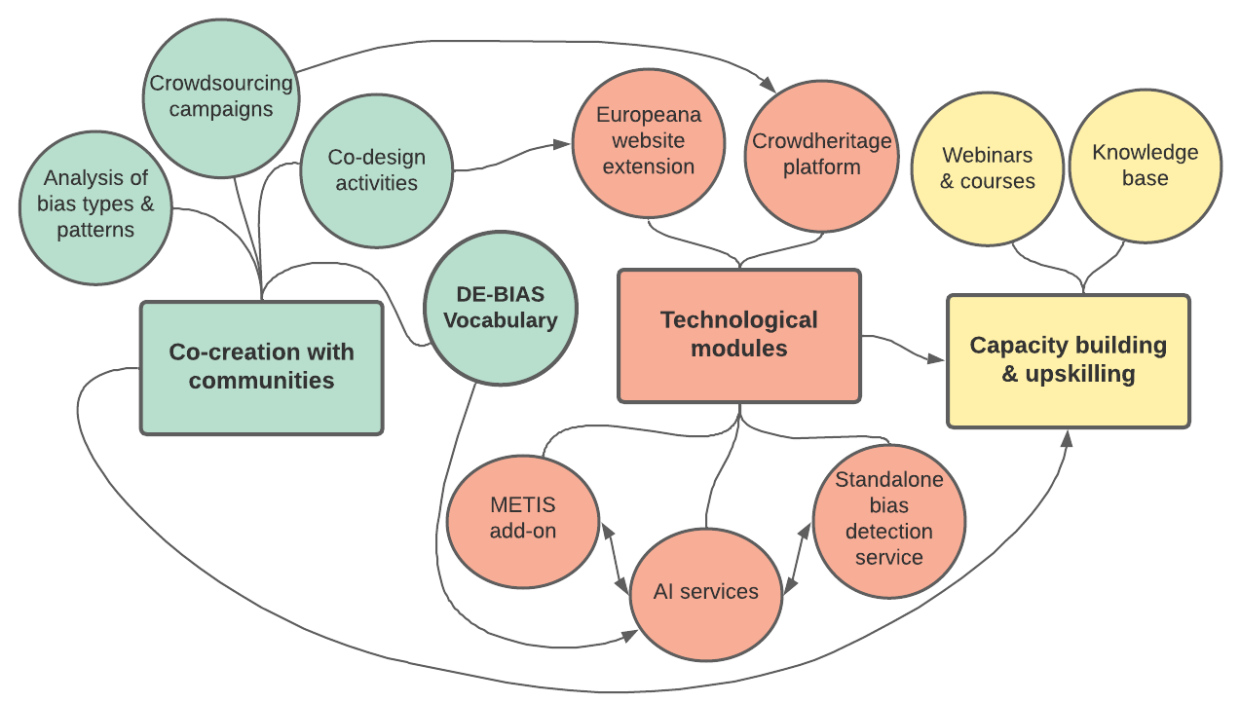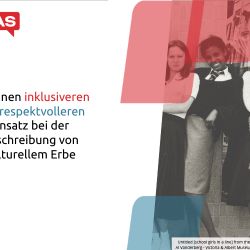DE-BIAS - Detecting and cur(at)ing harmful language in cultural heritage collections
DE-BIAS promotes a more inclusive and respectful approach to describing cultural heritage.
DE-BIAS promotes a more inclusive and respectful approach to describing cultural heritage.
Cultural heritage institutions in Europe and beyond have been undertaking work to describe and catalogue the historical objects in their collections for decades. However, once created, catalogue data are rarely updated to reflect changes in language and society. As a result, many object and collection descriptions that once fit into popular social narratives now convey outdated views that not only ignore and therefore alienate a wide range of people, but in some cases use language that is offensive, inappropriate or even harmful.
The DE-BIAS project aims to promote a more inclusive and respectful approach to the description of digital collections and the telling of stories and histories of minoritised communities. Over the course of two years, the project will develop an AI-powered tool to automatically detect problematic terms in cultural heritage metadata and provide information about their problematic background. It will use vocabularies that combine offensive language with contextual information and suggestions for appropriate terms.
These vocabularies will focus on three themes: migration and colonial history; gender and sexual identity; and ethnicity and ethnoreligious identity. They will be developed in collaboration with the affected marginalised communities by giving them the space and agency to change the way that cultural artefacts have previously been described due to outdated colonial, patriarchal and hegemonic structures. By enabling bottom-up work with marginalised communities, DE-BIAS seeks to improve the representation and participation of people who feel that museums and archives don’t speak of them or, worse, are not for them.
The project aims to analyse more than 4.5 million records in five different European languages currently published on the Europeana website and to automatically detect and flag item descriptions that contain derogatory language.

To achieve its objectives, DE-BIAS will:
Foster trust-based relationships between communities and cultural heritage institutions and leverage the knowledge and expertise of marginalised community members and their allies;
Create a set of recommendations to represent diversity in cultural heritage metadata and develop a replicable methodology for cultural heritage institutions to engage with communities;
Introduce design components on the Europeana website that contextualise contentious language in collections and enhance societal debate through polyvocal narratives;
Offer the developed AI-powered tool as a stand-alone version to interested cultural heritage institutions;
Build the capacity of cultural heritage institutions to understand, analyse and address bias in their collections, by offering capacity building workshops and a knowledge base with materials for cultural heritage professionals.
Follow the project hashtag #DeBias on social media to find out about the latest activities.
DE-BIAS is co-funded under the Digital Europe Programme (DIGITAL) of the European Union.
The project consortium is composed by:
DFF - Deutsches Filminstitut & Filmmuseum (coordinator) - Germany
Europeana Foundation - The Netherlands
Datoptron - Greece
European Fashion Heritage Association - Italy
Thinkcode - Cyprus
Michael Culture Association - Belgium
Centro Europeo per l’Organizzazione e il Management Culturale - Italy
Katholieke Universiteit Leuven - Belgium
Stichting Archives Portal Europe Foundation - The Netherlands
Ministère de la Culture et de la Communication - France
Stichting Nederlands Instituut Voor Beeld En Geluid - The Netherlands
Project Coordinator and main contact:
Kerstin Herlt, email: Herlt@dff.film
